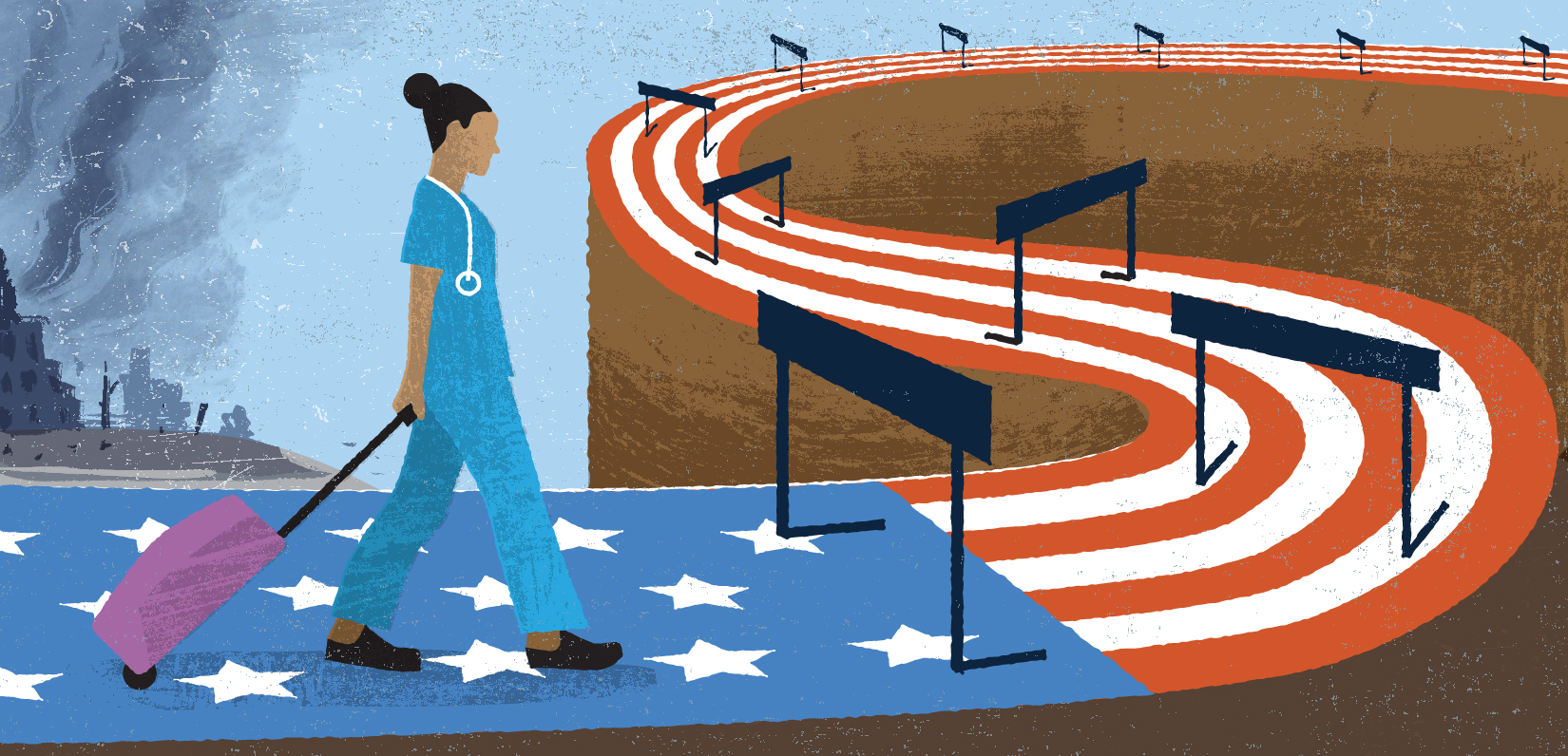Displacement is a traumatic experience. Nurses arriving in the United States as refugees from nations affected by war and violence face challenges with assimilation. But they also bring value as workers to a health care system that has long suffered extensive shortages of caregivers. Nurse leaders are eager to have the hands but must make sure that these new arrivals feel safe, looked after, and welcomed to a system that will be very foreign to them. Otherwise, they simply will not thrive.
“Nurse leaders play an integral role in optimizing migrant nurses’ transition to ensuring a diverse and thriving workforce,” reports lead author Angela Chang Chiu (with Johns Hopkins Nursing colleagues Jermaine Monk, Maria Docal, and Nancy Reynolds) in “Nursing Nurses: Fostering Safety and Belonging for Successful Workplace Assimilation of Displaced Nurses From War and Conflict” (Nurse Leader).
From the report:
“Successful assimilation into the US health care system requires a comprehensive strategy that prioritizes safety, and fosters a sense of belonging while considering the evolving needs and expectations of both nurse migrants and the health care institutions. This article delves into the multifaceted challenges faced by displaced nurses and key strategies needed for acclimatization to the intricacies of the US health care system.”
Key observations:
- Refugee nurses may represent an underused and valuable solution for host countries confronting deficits and health care delivery crises.
- Refugee nurses face psychosocial, regulatory, cultural, and linguistic challenges during their transition to resettlement and assimilation.
- The nursing workforce shortage is a global concern. The State of the World’s Nursing Report noted a shortfall of almost 6 million nurses, disproportionately in low- and middle-income countries, immediately before COVID-19. This figure does not account for the post-pandemic era or the wider gaps in the nursing workforce that exist in countries experiencing war and conflict where the health care systems have been decimated as a result of system and health care workforce disruptions.
[JHSON faculty work to protect Ghanaian nurses and midwives.]


